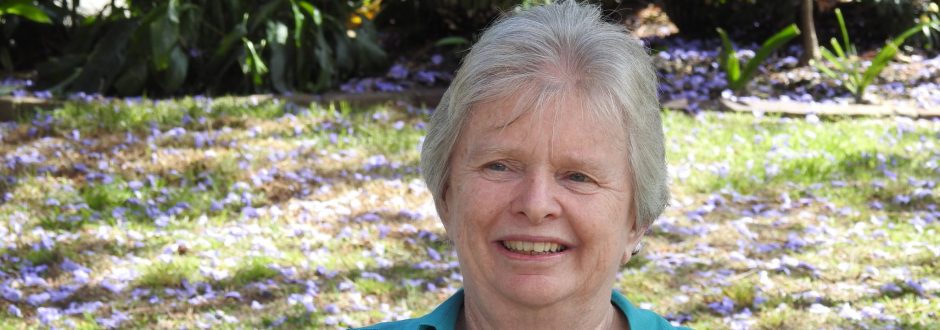Perhaps one of the most important tasks during Lent is to attend to my heart and to free it from past resentments, hatreds or revenge and to seek a freedom from anything that limits or inhibits a liberated spirit, says Good Samaritan Sister Clare Condon.
BY Clare Condon SGS
Often I hear it said: “I can forgive but I will never forget”. Yet, I think real forgiveness from within oneself is very difficult to achieve, especially if it is related to broken relationships, betrayal by a trusted person, or the destructive behaviour of someone which has seriously damaged another person. If I feel betrayed or abused by another I carry the scar. The scar remains. It hurts deeply.
The forgiveness proposed by the teaching and practices of Jesus in the Gospels is so often beyond our simple human efforts to achieve. There are many complex and paradoxical issues such as the application of adequate justice and appropriate punishment for inflicting injury and irreversible pain; and then there is the conflicting human need to go beyond resentment and revenge.
During this past week, I felt confronted by the passage in Matthew’s Gospel when Peter came and said to Jesus: “‘Lord, if another member of the church sins against me, how often should I forgive? As many as seven times?’ Jesus said to him, ‘Not seven times, but, I tell you, seventy-seven times’” (18:21-22).
Some biblical commentators would say that “seventy-seven” indicates every time and always. There are no exceptions. There is no limit on our requirement to forgive. Humanly speaking this is hard to grasp, let alone to accept.
Peter experienced this type of unconditional forgiveness from Jesus after he betrayed him on the night before Jesus’ death. Later, Jesus gave him the opportunity to experience God’s unconditional love and forgiveness when he asked Peter about the depth and quality of his love: “Do you love me?” Such forgiveness cannot be given cheaply. It cannot ignore the enormity of the action and the pain inflicted.
But on reflection, I think that if God can forgive me seventy times seven – that is, every time and in every circumstance, what is it that prevents me from a similar interior response, whereby I can find this deep and often painful forgiveness within my own depths?
Forgiveness doesn’t hit the headlines very often. We are more accustomed to reading about or listening to the call for revenge, hatred and payback. Our legal system rightly calls for justice, punishment, retribution and restitution for criminal and destructive acts. But punishment should fit the crime and rehabilitation must always be a significant part of restitution. Neither of these attributes necessarily calls for ongoing revenge and hatred. Rather, they call for restorative justice which assists in the healing of both offender and victim.
If my heart is full of revenge and hatred, then forgiveness is far from me. The one who ends up being damaged most is myself. The scars of the hurt and pain take over and become constant festering wounds. They inhibit my ability to grow beyond this pain and the hurt. In fact, I can become a victim to myself, lacking the freedom to live life to the full.
Therefore, it seems to me that in those terrible moments of betrayal and hurt, we need wise friends and counsellors who can help us achieve justice, but who can also lead us to an inner place of forgiveness, to a wholeness of life, to a place where my humanity is restored and strengthened; to a new place of peace.
Perhaps one of the most important tasks during a Lenten period is to attend to my heart and to free it from past resentments, hatreds or revenge and to seek a freedom from anything that limits or inhibits a liberated spirit.
Peter who, following his betrayal of Jesus, could weep with deep sorrow for his fear and weakness, must have remembered his question to Jesus about how often we are called to forgive. On reflection, he must have come to the realisation that he was already forgiven by Jesus. His experience of the risen Jesus confirmed his belief and made possible his own capacity to forgive seventy times seven.
I ask myself: like Peter, can I forgive myself and others with the generosity of spirit that following Jesus requires? Can I forgive seventy times seven?
